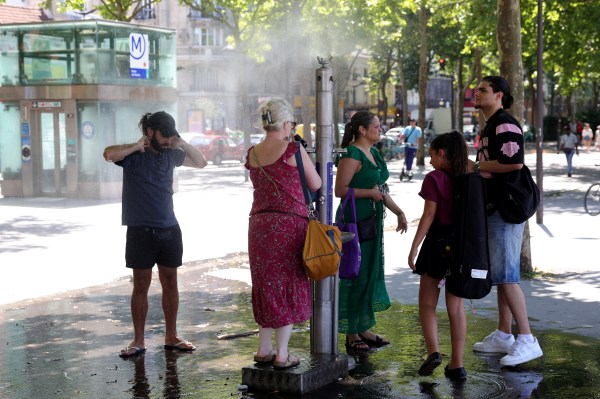There is no groundbreaking reason to watch Casablanca again. Nothing new to be gleaned from it, nothing new to be said about it. Indeed, there was nothing new about it when it came out 80 years ago this week. There’s a reason the New Yorker review at the time called it “pretty tolerable.” That long forgotten reviewer failed to appreciate the core reason Casablanca has become recognized as one of the greatest films ever made. It may have no pretense, no hard edge to show that it is high art, but it is true.
The story of Rick and Ilsa may, on the surface, seem removed from modern day life—they use rotary phones and write letters—but just because the trappings of their lives look different doesn’t mean the contents of their lives are. Love and jealousy, self-interest and self-sacrifice, freedom and tyranny. With little effort, the plot of the film could be updated to modern day. (That’s an observation, not an invitation, Hollywood. Remake Casablanca at your own risk.)
The greatest works of art, the ones that transcend generations and enter our cultural canon, manage to capture timeless themes of human existence. They explore love, heartbreak, sacrifice, devotion to a higher cause, or the score of other emotions and experiences that fill life. It is for this reason that the world has turned to Casablanca over and over again for the last 80 years and will continue to until the last humans die off. It is timeless. It is human. It does not matter that Rick and Ilsa’s story is told in black and white, nor that their telephones don’t have touch screens, nor that the story is set in a time and place that most of us never experienced. It captures a slice of the human experience on the silver screen; both depicting and giving insight into elements of life we can all recognize.
Perhaps the greatest bit of writing about Casablanca comes from semiotician Umberto Eco, who honed in on how the film achieved such a depth of the human experience in its script: its use of clichés and archetypes. While a certain type of cinephile insists on gritty realism for films to be considered great or even good, Casablanca shows how something can speak to audiences without any of the pretense critics seem to require from films today.
Clichés and archetypes are created through repetition. By and large, the things that are repeated most are truths that have borne out over and over again. And through exposure, clichés become shorthand; a way of quickly expressing something that is universally understood. By filling the film with clichés and archetypes, Eco writes, “Casablanca brings with it, like a trail of perfume, other situations that the viewer brings to bear on it quite readily.” Indeed, with little explanation or character exposition, we know the characters intimately. And Casablanca goes all in on cliché, a product, perhaps, of the fact that the film was being written as it was being filmed and the writers were pressed for ideas. Who wouldn’t rely on the tried and true in their shoes?
Editors everywhere bemoan the use of clichés in stories, and, indeed, they are right to complain about the awkward sensation the use of the unoriginal bears when surrounded by the original. But Eco posits that the sheer number of clichés elevates Casablanca, writing: “When the choice of the tried and true is limited, the result is a trite or mass-produced film, or simply kitsch. But when the tried and true repertoire is used wholesale, the result is an architecture like Gaudi’s Sagrada Familia in Barcelona. There is a sense of dizziness, a stroke of brilliance.”
“Just as the height of pain may encounter sensual pleasure, and the height of perversion border on mystical energy, so too the height of banality allows us to catch a glimpse of the sublime.”
That Casablanca is true makes it a classic all on its own. That it is beautifully shot, wonderfully acted, and endlessly quotable is icing on the cake—“Round up the usual suspects,” “we’ll always have Paris,” here’s looking at you kid,” “this looks like the beginning of a beautiful friendship.” It should be noted too, that the singing of “La Marseillaise” may be the most moving scene in cinematic history.
Eighty years on and the world may have changed, but humans haven’t. Life is cliché. It’s still the same old story: A fight for love and glory, a case of do or die. The world will always welcome lovers, as time goes by.







Please note that we at The Dispatch hold ourselves, our work, and our commenters to a higher standard than other places on the internet. We welcome comments that foster genuine debate or discussion—including comments critical of us or our work—but responses that include ad hominem attacks on fellow Dispatch members or are intended to stoke fear and anger may be moderated.
With your membership, you only have the ability to comment on The Morning Dispatch articles. Consider upgrading to join the conversation everywhere.